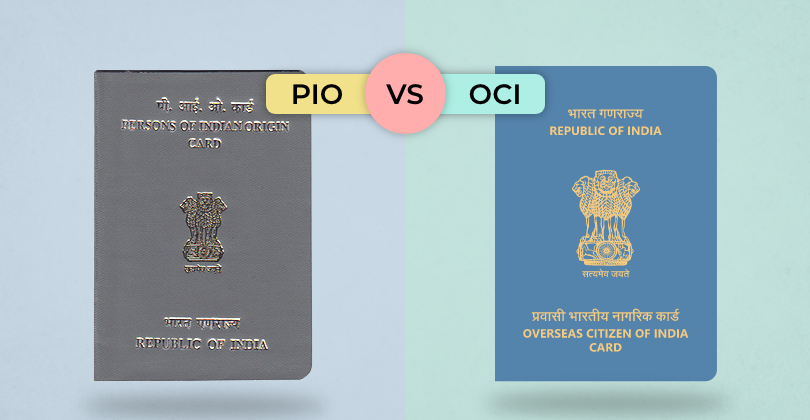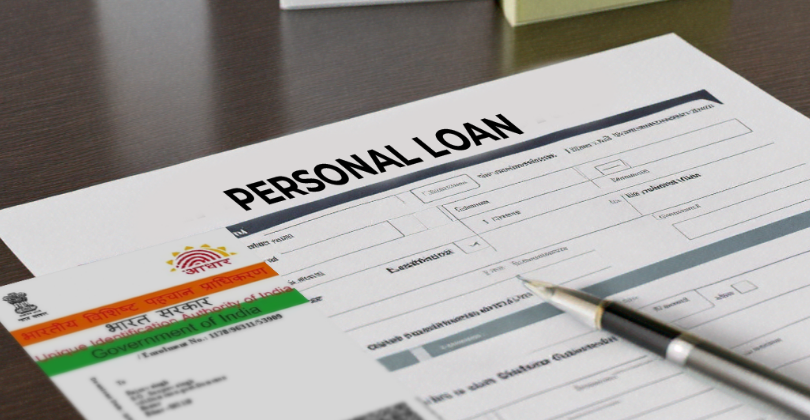Are you of Indian origin and living abroad? You've probably come across terms like PIO and OCI. These cards offer different benefits, but it can
Individuals often find themselves in need of financial assistance to achieve various goals and manage unforeseen expenses. Personal loans have emerged as a popular option for addressing such needs, providing borrowers with the necessary funds to bridge financial gaps.
However, circumstances can change, and borrowers might encounter difficulties in repaying their loans on time. To address this concern, financial institutions offer a lifeline known as the moratorium period.
This article delves into the concept of the moratorium period in personal loans, shedding light on its significance and the process of availing it.
What Is the Moratorium Period?
The moratorium period, also referred to as a repayment holiday or grace period, is a specific duration during which borrowers are granted temporary relief from making their loan repayments. This period is a crucial aspect of personal loans, designed to offer borrowers some breathing space when they are facing financial challenges or unexpected setbacks impacting their financial condition.
During the moratorium period, borrowers are not required to make any principal or interest payments, allowing them to manage their finances more effectively without the burden of loan obligations.
Significance of the Moratorium Period
The moratorium period is significant for both borrowers and lenders, as it serves as a crucial tool in ensuring financial stability and addressing unforeseen challenges. The following points highlight the significance of the moratorium period:
-
Financial Flexibility
The primary purpose of the moratorium period is to provide borrowers with financial flexibility. Life is unpredictable, and individuals can face sudden medical expenses, job losses, or other unforeseen events that impact their ability to make regular loan payments.
The moratorium period serves as a safety net during such times, enabling borrowers to prioritise their immediate financial needs without defaulting on their loan obligations.
-
Avoiding Default
One of the significant benefits of the moratorium period is that it helps borrowers avoid loan default. Defaulting on a loan can have serious consequences, including a negative impact on the borrower's credit score, legal actions, and additional financial stress.
By offering a grace period, lenders acknowledge that borrowers might be going through temporary financial difficulties and provide them with an opportunity to regain their stability.
-
Reducing Stress
Financial stress can have a detrimental effect on an individual's physical and mental well-being. The moratorium period alleviates this stress by giving borrowers the necessary time to stabilise their financial situation without the pressure of loan payments.
Secure your future with KreditBee's flexible loans - don't wait, apply now and seize opportunities!Check Now!
The Process of Availing a Moratorium Period
The process of availing a moratorium period in a personal loan involves several key steps that borrowers need to understand:
-
Eligibility and Application
Borrowers need to check whether they are eligible for a moratorium period on their personal loan. Eligibility criteria can vary from lenders and loan types.
Some lenders automatically provide a moratorium period to borrowers facing certain circumstances, while others require borrowers to apply for it. Borrowers need to submit a formal request to the lender, explaining the reasons for seeking a moratorium.
📗 Related reading- How Do You Improve Your Loan Eligibility?
-
Documentation
Lenders typically require documentation that validates a borrower's reasons for seeking a moratorium. This could include medical certificates, job loss notices, or any other relevant documents that substantiate the borrower's financial challenges. Providing accurate and genuine documentation is crucial to the approval process.
-
Communication
Effective communication between the borrower and the lender is essential. Borrowers should reach out to their lender as soon as they anticipate difficulties in making loan payments. Proactive communication demonstrates the borrower's willingness to address the situation responsibly and cooperatively.
-
Review and Approval
Once the borrower's application and documentation are submitted, the lender's team reviews the case. The lender assesses the reasons provided by the borrower and decides whether to approve the moratorium period request. It's important to note that lenders might not grant a moratorium period in all cases, as each application is evaluated individually.
-
Terms and Conditions
If the moratorium period is approved, the lender will provide the borrower with the terms and conditions. These conditions outline the specific duration of the grace period, any applicable charges or fees, and the revised repayment schedule after the moratorium period ends.
-
Temporary Relief
During the moratorium period, borrowers are relieved from making loan payments. This period is an opportunity for borrowers to stabilise or improve their financial condition, explore alternative income sources, or recover from setbacks without the immediate burden of loan repayments.
-
Interest Accrual
It's important to understand that while borrowers are not required to make principal or interest payments during the moratorium period, interest continues to accrue on the outstanding loan balance.
This means that the total amount owed by the borrower will increase over the grace period. Borrowers should consider this factor while planning their finances for the post-moratorium period.
-
Post-Moratorium Repayment
At the end of the moratorium period, borrowers resume their loan repayments. However, due to the interest accrual during the grace period, the loan amount usually increases. Lenders typically provide borrowers with a revised repayment schedule, which includes slightly higher instalments to accommodate the accrued interest.
Ready to turn your dreams into reality? Discover the power of loans on KreditBee.Get Started!
Factors to Consider Before Opting for a Moratorium Period
While the moratorium period can provide much-needed relief during tough times, borrowers should carefully consider certain factors before opting for it:
-
Accrued Interest
As mentioned earlier, interest continues to accrue during the moratorium period. Borrowers must be prepared to pay higher overall interest costs due to the increased loan amount post-grace period.
-
Extended Loan Tenure
The loan tenure might be extended to accommodate the moratorium period and the increased interest amount. This can impact the borrower's financial planning over the long term.
-
Financial Impact
Borrowers should assess their financial situation thoroughly and determine whether they genuinely need a moratorium period. If there are alternate sources of funds or options for managing temporary financial difficulties, these should be considered as well.
-
Credit Score Impact
While a moratorium period can help avoid loan default, it might still have an impact on the borrower's credit score. Lenders may report the moratorium to credit bureaus, which could influence the borrower's creditworthiness.
Conclusion
The moratorium period in personal loans is a valuable tool that offers borrowers a temporary reprieve from their loan repayments during challenging times. It serves as a lifeline, enabling individuals to manage their immediate financial needs without the burden of loan obligations.
However, borrowers should approach the moratorium period with careful consideration, weighing its benefits against the potential drawbacks. Clear communication with the lender, accurate documentation, and an understanding of the terms and conditions are essential for a smooth process.
Ultimately, the moratorium period exemplifies the financial industry's recognition of the human element in lending and its commitment to supporting borrowers during times of financial distress.
AUTHOR
KreditBee As a market leader in the Fintech industry, we strive to bring you the best information to help you manage finances better. These blogs aim to make complicated monetary matters a whole lot simpler.







